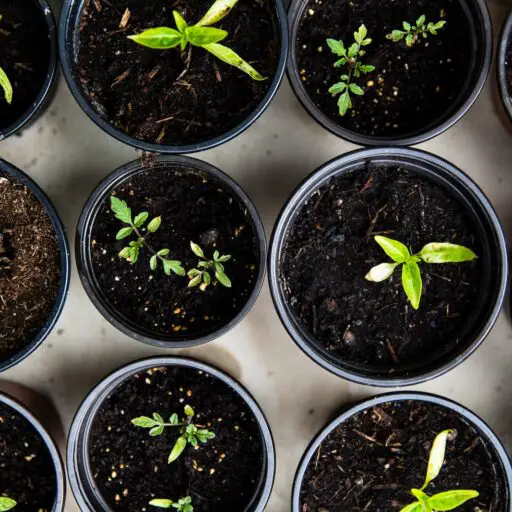Support our educational content for free when you purchase through links on our site. Learn more
Quick Answer:
Community gardens offer numerous benefits, including fostering a sense of community, promoting environmental sustainability, and improving physical and mental well-being.
Table of Contents:
- Quick Answer
- Quick Tips and Facts
- Fostering a Sense of Community
- Promoting Environmental Sustainability
- Improving Physical and Mental Well-being
- FAQ
- Conclusion
- Recommended Links
- Reference Links
Quick Tips and Facts
- Community gardens bring people together to cultivate plants and share the harvest.
- They can be found in urban areas, schools, churches, and other community spaces.
- Community gardens provide a space for people of all ages and backgrounds to connect.
- Gardening in a community setting can reduce stress and improve mental health.
- These gardens promote sustainable practices and help combat climate change.
Fostering a Sense of Community
Community gardens act as a hub where people from different backgrounds come together to grow plants, share knowledge, and build relationships. The benefits of fostering a sense of community include:
-
Social Interaction: Community gardens provide a space for people to interact and connect with their neighbors, fostering a sense of belonging and reducing social isolation. Working side by side in the garden promotes conversations, sharing of ideas, and the formation of friendships.
-
Skill Sharing: Community gardens offer an opportunity for experienced gardeners to share their knowledge and skills with beginners. This exchange of expertise not only helps individuals improve their gardening abilities but also creates a supportive learning environment.
-
Cultural Exchange: Community gardens bring people from diverse cultural backgrounds together, providing a platform for cultural exchange. Gardeners can share their traditional planting techniques, recipes, and stories, promoting understanding and appreciation of different cultures.
-
Sense of Pride: Community gardens create a sense of pride and ownership among participants. Seeing the fruits of their labor grow and flourish instills a sense of accomplishment and pride in the community.
-
Collaborative Decision-Making: Community gardens often involve collaborative decision-making processes, where participants collectively decide on garden designs, rules, and shared responsibilities. This democratic approach empowers individuals and strengthens community bonds.
Promoting Environmental Sustainability
Community gardens play a vital role in promoting environmental sustainability. Here are three ways they contribute to a greener future:
-
Green Spaces in Urban Areas: Community gardens transform vacant lots and unused spaces into vibrant green areas, improving the aesthetics of urban neighborhoods. These green spaces help reduce the urban heat island effect, mitigate air pollution, and provide habitats for beneficial insects and birds.
-
Food Security: Community gardens contribute to local food security by providing fresh, nutritious produce to participants. By growing their own food, community gardeners reduce their reliance on store-bought produce, which often requires long-distance transportation and contributes to carbon emissions.
-
Composting and Waste Reduction: Community gardens promote composting and waste reduction practices. Gardeners can compost kitchen scraps, yard waste, and fallen leaves, turning them into nutrient-rich soil amendments. This reduces the amount of waste sent to landfills and helps create sustainable gardening practices.
-
Education and Awareness: Community gardens serve as educational platforms, teaching participants about sustainable gardening techniques, organic pest control, and water conservation. This knowledge can then be shared with the wider community, raising awareness about the importance of sustainable practices.
Improving Physical and Mental Well-being
Engaging in community gardening offers numerous physical and mental health benefits. Here are three ways community gardens contribute to overall well-being:
-
Physical Activity: Gardening is a physical activity that engages the entire body. Digging, planting, weeding, and harvesting provide exercise and help improve strength, flexibility, and cardiovascular health. Spending time outdoors in the garden also exposes individuals to vitamin D from sunlight, which is essential for bone health.
-
Stress Reduction: Gardening has been shown to reduce stress and improve mental well-being. The act of tending to plants, being surrounded by nature, and enjoying the beauty of the garden can have a calming effect on the mind. Gardening also provides a sense of purpose and achievement, boosting self-esteem and reducing anxiety.
-
Therapeutic Benefits: Community gardens can serve as therapeutic spaces for individuals dealing with physical or mental health challenges. Horticultural therapy programs, often conducted in community gardens, have been shown to improve cognitive function, reduce symptoms of depression, and enhance overall quality of life.
-
Access to Fresh Produce: Community gardens provide participants with access to fresh, organic produce. Consuming fruits and vegetables grown in the garden contributes to a nutritious diet, supporting better physical health and reducing the risk of chronic diseases.
FAQ
Q: What are 3 benefits of gardening?
A: Gardening offers numerous benefits, including stress reduction, physical activity, and improved mental well-being. It provides an opportunity to connect with nature, grow food, and create beautiful outdoor spaces.
Q: What are the CDC benefits of community garden?
A: According to the Centers for Disease Control and Prevention (CDC), community gardens promote physical activity, improve access to healthy food, and enhance social connections. They are recognized as a valuable tool for public health and community development.
Q: How does community gardening bring people together?
A: Community gardening brings people together by providing a shared space where individuals can work collaboratively towards a common goal. It encourages social interaction, skill sharing, and cultural exchange, fostering a sense of community and belonging.
Q: How do community gardens help climate change?
A: Community gardens help combat climate change by promoting sustainable practices such as composting, waste reduction, and organic gardening. They also contribute to local food security, reducing the carbon footprint associated with long-distance food transportation.
Conclusion
Community gardens offer a multitude of benefits that go beyond just gardening. They foster a sense of community, promote environmental sustainability, and improve physical and mental well-being. By participating in community gardening, individuals can connect with their neighbors, contribute to a greener future, and enhance their overall quality of life.
Remember, the benefits of community gardening extend beyond the three mentioned here. So, grab your gardening tools, gather your neighbors, and start cultivating a thriving community garden today!
Recommended Links
- Shop gardening tools and supplies on Amazon: Gardening Tools | Gardening Supplies
- Explore community gardening events on Community Gardening™: Community Garden Events
- Discover garden design ideas on Community Gardening™: Garden Design Ideas



